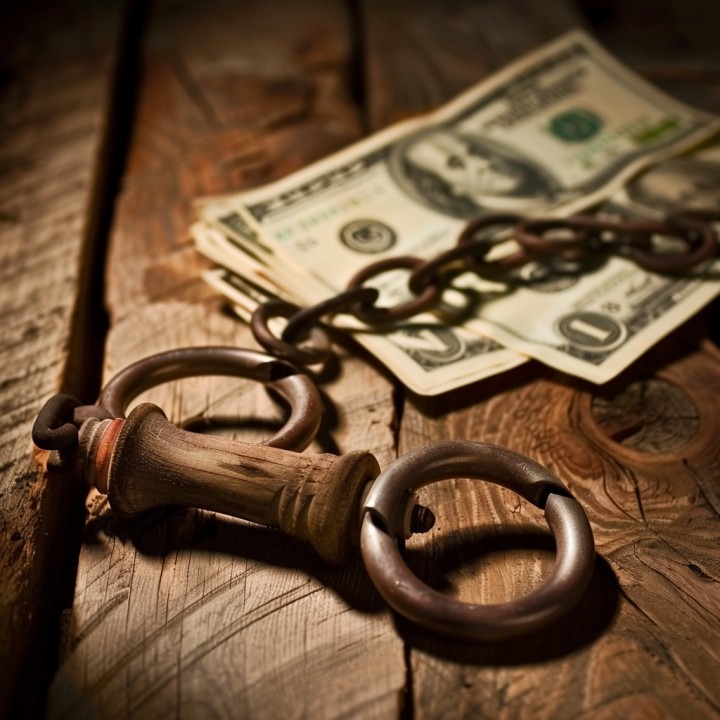Definition of Bail and Bond
Bail is a set amount of money that acts as insurance between the court and the person in jail (the defendant). The defendant can pay bail to be released from custody while awaiting their trial. A bond is posted on the defendant’s behalf, typically by a bail bondsman, ensuring the defendant’s return to court.
Common Methods of Paying Bail
The most common methods of paying bail include cash payments, surety bonds through a bail bondsman, and property bonds. Each method has its own set of requirements and conditions.
Using a Credit Card for Bail
Is It Possible to Pay Bail with a Credit Card?
Yes, many jurisdictions allow bail to be paid with a credit card. This option can provide a convenient and immediate way to secure a release from jail when cash or other assets are not readily available.
Benefits of Using a Credit Card for Bail
- Convenience: Easily accessible and quick, especially during emergencies.
- Immediate Availability: No need to gather large amounts of cash or liquidate assets.
- Record Keeping: Credit card statements provide an automatic record of the transaction.
Drawbacks of Using a Credit Card for Bail
- Fees and Interest: Credit card payments may incur fees, and interest charges can accumulate if the balance is not paid off promptly.
- Credit Limits: High bail amounts may exceed your credit card limit.
- Financial Strain: Using a credit card can add to personal debt, potentially impacting your credit score.
The Process of Paying Bail with a Credit Card
Steps to Follow
- Contact the Jail or Court: Confirm that the facility accepts credit card payments for bail.
- Gather Information: Have the defendant’s full name, booking number, and the bail amount ready.
- Provide Credit Card Details: Enter the credit card number, expiration date, and security code.
- Complete the Transaction: Follow any additional instructions to finalize the payment.
Required Information
To pay bail with a credit card, you typically need:
- Defendant’s full name
- Booking or case number
- Bail amount
- Credit card details (number, expiration date, security code)
Fees and Charges
Using a credit card for bail can involve:
- Processing Fees: Some jails or courts may charge a processing fee for credit card transactions.
- Interest Rates: If you don’t pay off the credit card balance immediately, interest charges can accrue.
- Service Fees: Credit card companies may charge a service fee for cash advances.
Alternatives to Using a Credit Card for Bail
Cash Payment
Paying bail in cash is straightforward but requires having the full bail amount available immediately.
Bail Bondsman Services
A bail bondsman can post bail on your behalf for a fee, usually a percentage of the total bail amount. This option is useful if you can’t pay the full amount.
Property Bonds
Using property as collateral can secure a bond, but this process is more complex and time-consuming than paying with cash or a credit card.
Legal and Financial Considerations
Legal Regulations
Each jurisdiction has its own regulations regarding bail payments. It’s essential to understand the specific rules and requirements in your area.
Financial Implications
Using a credit card for bail can have significant financial implications, including increased debt and potential impacts on your credit score. Weigh these factors carefully before proceeding.
Frequently Asked Questions (FAQs)
Can you pay bail with a credit card?
Yes, many jurisdictions allow you to pay bail with a credit card. Check with the specific jail or court to confirm their payment methods.
What are the fees associated with using a credit card?
Fees can include processing fees from the jail or court, interest rates from the credit card company, and service fees for cash advances.
Are there limits on how much bail you can pay with a credit card?
Yes, limits depend on your credit card’s limit and the policies of the jail or court. High bail amounts may exceed your available credit.
What if my credit card is declined?
If your credit card is declined, consider using another form of payment, such as cash or seeking assistance from a bail bondsman.
Can I use someone else’s credit card to pay bail?
In most cases, yes, but you need permission from the cardholder and may need to provide additional verification.
What are the alternatives if I can’t use a credit card?
Alternatives include paying with cash, using a bail bondsman, or providing property as collateral for a bond.
Conclusion
Paying bail with a credit card is a convenient option that many jurisdictions offer. However, it’s essential to consider the associated fees, interest rates, and potential impact on your financial situation. Understanding the process and alternatives can help you make an informed decision during a challenging time.






